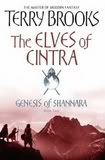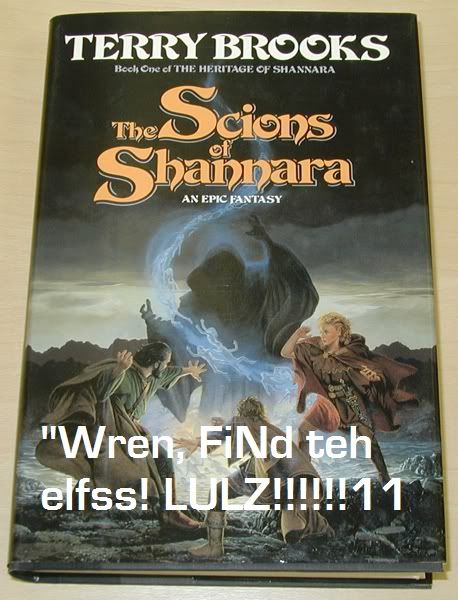 (This review also includes the prequel,
(This review also includes the prequel, Armageddon's Children
--I read both books back to back and the story flows so well that it's hard to distinguish where one book ends and the other begins, so no spoilers for either!)I didn’t rush out to buy
Armageddon’s Children when it first came out for the simple reason that I wanted to wait until the entire trilogy was released. There aren’t many books I will do this for, but Terry Brooks’ “
The Word and the Void” series is one of them.
For those of you who may not be aware yet, the “
Genesis of Shannara” is a trilogy written to link two of Terry’s best series together. Set after the events “
Angel Fire East” and before the world of the Four Lands,
Armageddon’s Children and
Elves of Cintra follow the journeys undertaken by two Knights of the Word in a post-apocalyptic world.
To some the premise of linking the two series together (rather than writing a straight sequel to the original
Word and Void) may seem like a bit of a contradiction for an author who usually prefers to let his readers fill in the blanks.
However, any misgivings are sure to disappear just a few pages into
Armageddon’s Children. Any worries or disappointments at Terry’s latest works like
Straken are sure to fade, as it is soon delightfully obvious that he is back on top form.
Despite Brooks’ entertaining
Shannara and
Landover series,
Word and Void is where he really shines. This new series is a lot bleaker than the original trilogy, as the future foreseen in them has come to pass. Arthurian themes have diminished considerably, replaced instead with Messianic themes and references to Exodus (which were quite painful to read, I must admit)—not particularly disappointing, but not exactly subtle.
Subtlety is also lacking with just about any reference to things relating to
Shannara. Small things that could easily be picked up by regular Brooks readers seemed to have been signposted in huge fluorescent letters. Don’t expect Lynch-like subtlety from
Elves of Cintra or
Armageddon's Children.

Most of the characters aren’t generally likeable, but they are interesting in their own ways. Every character has an event in their background that has shaped them dramatically, and breaks are often taken to explore relevant characters’ backgrounds through passages bearing some resemblance to “dream sequences” the Knights of the Word experience.
But it’s not even the characterization that places this book above par. It’s the action and the tension—there’s a constant “all or nothing” approach to the situations all the characters are facing. Things I’ve been wondering in my fanboy-like of moments are acted out; questions that have been tossed about by fans for years have been addressed and at times it feels like an adrenaline shot.
Rationale: It was very hard to pinpoint exact things that made
Elves of Cintra and its predecessor such a great read, but that is probably because even as a reviewer my mind was drawn away from the artifice and into the story.












 (This review also includ
(This review also includ


